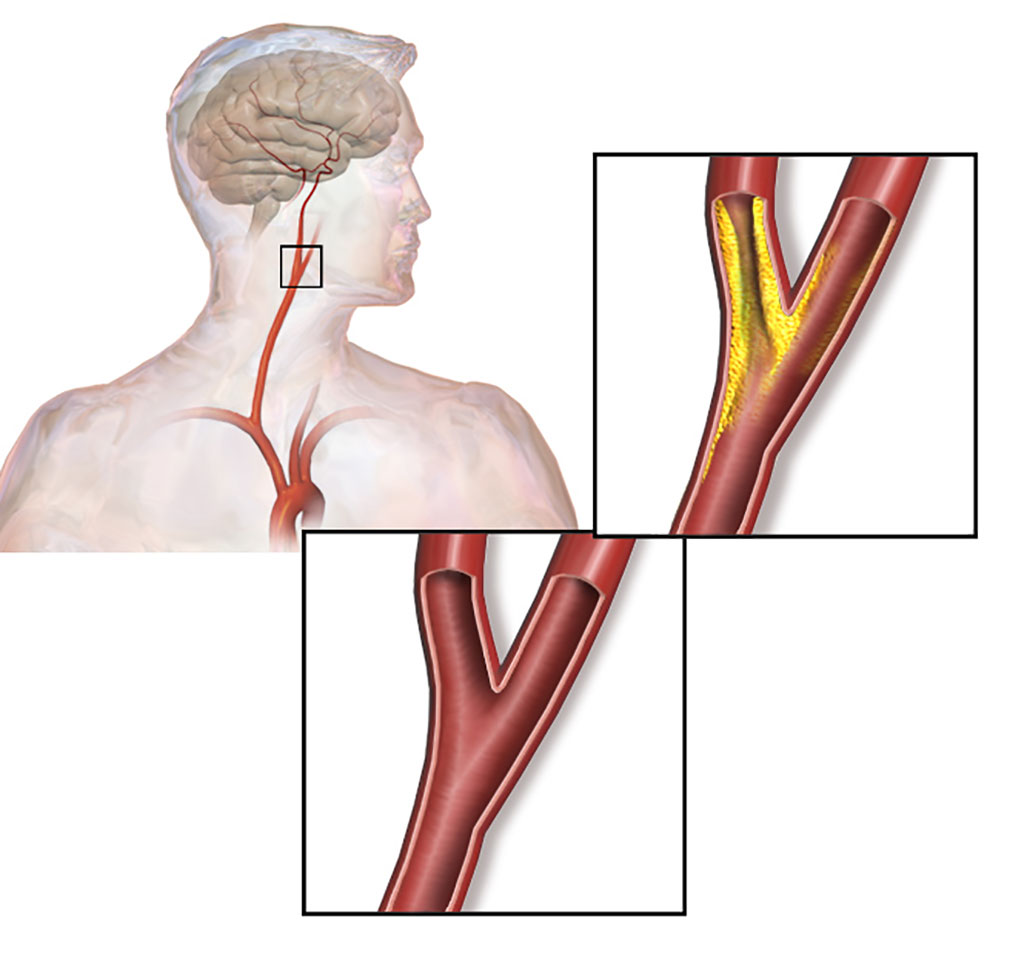Two Circulating Biomarkers Predict Cardiovascular Disease Risk in Psoriasis Patients
Posted on 11 Mar 2022
Blood levels of the protein biomarkers cardiac troponin I (cTnI) and N-terminal pro-brain-type natriuretic peptide (NT-proBNP) in patients with psoriatic disease (PsD) were found to be associated with carotid plaque burden and the development of cardiovascular disease (CVD) independent of traditional CVD risk factors.
Individuals with psoriasis and psoriatic arthritis, collectively known as psoriatic disease, are more likely to develop cardiovascular disease than others in the general population.

In order to discover whether these people carry biomarkers that could help predict their risk of developing CVD, investigators at the University of Toronto (Canada) measured carotid total plaque area (TPA), cTnI, and NT-proBNP in 358 patients within a group of 1000 patients with PsD.
For more than 15 years cTnI has been known as a reliable marker of cardiac muscle tissue injury. In addition, NT-proBNP levels in the blood are used for screening, diagnosis of acute congestive heart failure, and may be useful to establish prognosis in heart failure, as this marker is typically higher in patients with worse outcome. The plasma concentrations of NT-proBNP is also typically increased in patients with asymptomatic or symptomatic left ventricular dysfunction and is associated with coronary artery disease and myocardial ischemia.
Results obtained in the current study showed that cTnI and NT-proBNP were associated with TPA. After adjusting for CV risk factors, the association remained statistically significant for cTnI but not NT-proBNP. Among 1,000 patients with PsD assessed for CV risk prediction, 64 patients had incident CV events.
“Our study provides new insights regarding the pathophysiology of cardiovascular diseases in psoriasis and psoriatic arthritis. However, at this time, ordering tests of cardiac biomarkers is not recommended for risk stratification of asymptomatic patients with psoriatic disease,” said senior Dr. Lihi Eder, associate professor of medicine at the University of Toronto.
The study was published in the March 8, 2022, online edition of the journal Arthritis & Rheumatology.
Related Links:
University of Toronto













